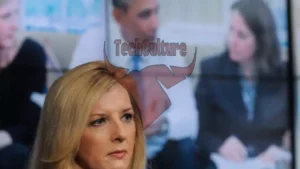Germany’s Center-Right Alliance Projected to Win Federal Election
Germany’s center-right alliance, led by the Christian Democratic Union (CDU) and Christian Social Union (CSU), is projected to secure victory in the federal election with approximately 29% of the vote. The far-right Alternative for Germany (AfD) is expected to claim second place, garnering around 21% of the votes, while the center-left Social Democratic Party (SPD), led by former Chancellor Olaf Scholz, is set to finish third.
This election comes in the wake of a political upheaval that saw the collapse of Germany’s governing coalition after Scholz dismissed Finance Minister Christian Lindner. The subsequent loss of a confidence vote in December precipitated these early national elections.
Friedrich Merz, leader of the CDU, is now positioned to become Germany’s next chancellor. However, to form a government, Merz will need to build a coalition, likely partnering with either the Social Democrats or the Green Party. Depending on the final results, a three-party coalition remains a possibility.
The CDU/CSU bloc’s campaign focused on stricter migration policies, maintaining fiscal discipline through the debt brake, and continued support for Ukraine. These stances appear to have resonated with voters amid growing concerns about immigration and economic stability.
The election results come at a critical juncture for Germany’s role in NATO and its relationship with the United States, particularly in light of recent comments from former President Donald Trump. Merz has expressed intentions to strengthen Europe’s independence from the USA, a stance that could reshape transatlantic relations.
Notably, the AfD, which received support from tech entrepreneur Elon Musk, has made significant gains with its anti-immigration platform. Musk’s virtual appearance at an AfD campaign event and endorsement of their policies likely contributed to their strong showing. Despite this, the AfD is not expected to participate in coalition talks.
As Germany prepares for a shift in leadership, the international community watches closely. The election results are poised to influence not only Germany’s domestic policies but also its role within the European Union and its relationships with global powers.



